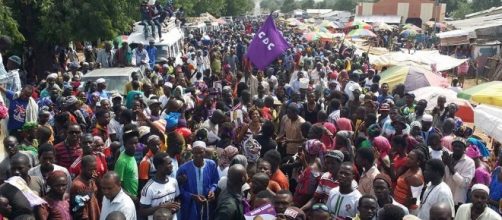The West African nation of Gambia is on the verge of military intervention as its leader Yahya Jammeh "refuses to relinquish power", the Telegraph newspaper reports. But what this situation illustrates is that democracy does not always ensure that dictatorial rule is prevented and if abused, greater problems will arise. The questions to ask are, not only how has this situation been allowed to develop but what now?
What has happened?
Yahya Jammeh has been the leader of Gambia for 22 years having seized power in a coup. Despite the fact that, according to the BBC, the country has, unlike many of its neighbours, enjoyed "long spells of stability" since its independence, there are many problems that remain.
For the most part, Jammeh ruled Gambia with "increasing ruthlessness" as stated on the Chatham House website. It seemed that fatigue after more than two decades of Jammeh's rule and a stagnant economy acted as a catalyst for what was to come. In the presidential elections that took place, Adama Barrow defeated Jammeh, winning 43.3% of the vote. However, although initially conceding defeat, Jammeh then claimed that he would not be accepting the results, claiming "fraud and irregularities" according to The Japan Times website. The problem is that having once claimed that he would rule for "billions of years", he is currently trying to "cling to power".
The positive and the negative
In many ways, one can look at the situation in a positive light.
Whereas dictatorial rule has become a feature for a number of African countries, here in Gambia they abide by democratic rule. Although there have only been two presidents (excluding Barrow) since its independence in 1965, democracy has existed for over twenty years since the military coup in 1994. However, on the other hand, what the recent events illustrate is just how frail the political system is in Gambia. Everyone has to be subject to the democratic process and must respect the results, whatever they may be. This is imperative. And this is something that Yahya Jammeh has just not done. It is no surprise therefore that those nations around Gambia have tried to convince Jammeh to "step aside" and threatened the use of military force if he does not, the Telegraph reports.
What now?
What this will do, not only to the people of Gambia but to the region itself I do not know. But in ensuring that stability is preserved, the situation needs to be resolved now and quickly. Whether if that is through military intervention from those around Gambia or by internal pressure applied to Jammeh, a solution is required. If not, greater problems will persist in the near future.

